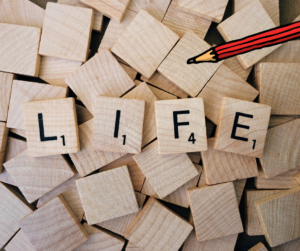I belong to a writing group. What I like about this connection ISN’T just stringing together sentences on the fly to test our skills, or that each member braves criticism reading out loud what they’ve written outside the group — it’s more. We look into the inner core of what we each go through before, during, and after we write. These discussions have been my guiding light.
First Key: Focus Small for Big Results:
This is my constant reminder: quality of writing far exceeds quantity. Someone asked me if I can I write 5,000 words a day. I thought about it, and to be honest, I can’t. I want the words to mean something, not just to prove I can fill up blank pages. That being said, stepping back and taking breaks in small chunks of time allows the words to flow . . . and on a good day, I’ve gotten up to 1,000 words. My goal in time, with discipline, will be 5,000 words.
For me, small focuses are treats — a necessity for time away from writing: to get outside, take in a movie, go to a museum, get lost in a neighborhood bookstore, or gather with friends. These small doses of life really zap me with renewed energy.
Second Key: Kick Failure to the Curb:
Self doubt plagues everyone, but with us writers, self doubt is a curse! It’s a dream come true to be able to be to sit at my laptop and use my imagination, but more importantly, receive praise for what I’ve written. But behind the scenes, reality is a different color.
After I read what I‘ve written, I think —Who will want to read this? Have I given it my best? Will that first agent rejection letter kill my dreams?
 When my friends in the writer’s group noodled this for quite a while, we agreed self-doubt and failure is as much a part of life as love, flowers, sunshine, weddings, and good sex! We all chimed in: perfection is overrated.
When my friends in the writer’s group noodled this for quite a while, we agreed self-doubt and failure is as much a part of life as love, flowers, sunshine, weddings, and good sex! We all chimed in: perfection is overrated.
It’s only in accepting failure, I’ve been able to analyze myself and dig not just into my writing, but also see flaws I need to work on, to be a better writer. For example: In plotting my story; is it a page-turner? Are my characters touchable? If I can’t with full honesty say, “Yes”, then failure is only a stone’s throw away. On the flip side: I think, we don’t know that our knowledge is wrong until we test it out and see whether it works. We can’t truly learn something new until we try and fail a bunch of times. As a writer, experiment is one of my secrets exploring who I am as a storyteller.
This is the reason why quality for me, far exceeds quantity to write a certain number of words a day.
So instead of looking at failure as bad, I say — kick it to the curb. Failure is a lesson, an opportunity to get better, a wise high school teacher once told me, “Focus on the learning.”
Third Key: Enjoyment is the Process:
Frustration is a landmine! When I feel my writing is a slow drip, frustration hits me hard. My go-to moment is my collection of books from female authors I admire after reading their work (naming a few): Toni Morrison, Joanne Harris, Harper Lee, Maya Angelou, Alice Walker, and Anne Rice. I stop and read their words, which is the best-kick-me-in-the-ass! I’m back on track and loving the words I’m writing! I really feel I can do it —-no, not to be the next Alice Walker, but me . . . C.L. Charlesworth. All these writers had a story to tell, as quirky, entangled, and as robust as full head-on hurricane! I breathe, this is my writing, and it gives me pure enjoyment.
Writing and editing and re-editing (so many times you want to vomit) — a full fiction novel is a marathon of solitary tears, anger, will power, and just, pure enjoyment because of the enormous belief in the process, that nothing can shake your foundation. So, I focus on the journey and know when I write THE END, it’ll be because the joy of writing superseded any frustration.
Fourth Key: Uncertainty is Just Fine:
When I decided (late in life) to take myself seriously and write fiction, uncertainty was my best friend. Who was I to think my stories would be interesting? But I took a chance, with baby steps, classes, writing down titles, backstories, and plotting my characters’ and my own uncertain adventure. Whether or not I’d end up on the New Times Best Seller’s List wasn’t a goal. I wanted to write for me. As time passed and confidence came, I began to think —my stories ARE good.
My writing group and I agree —- uncertainty of learning and trying something new, is a most difficult thing — especially later in life. We don’t like that uncertainty, and we usually shy away from it. But for me, with a conscious practice of exploring my life—JOY comes from NOT knowing, but journeying out of my comfort zone. I can say at this point, my writing has opened my mind to so many possibilities —- other than writing.
